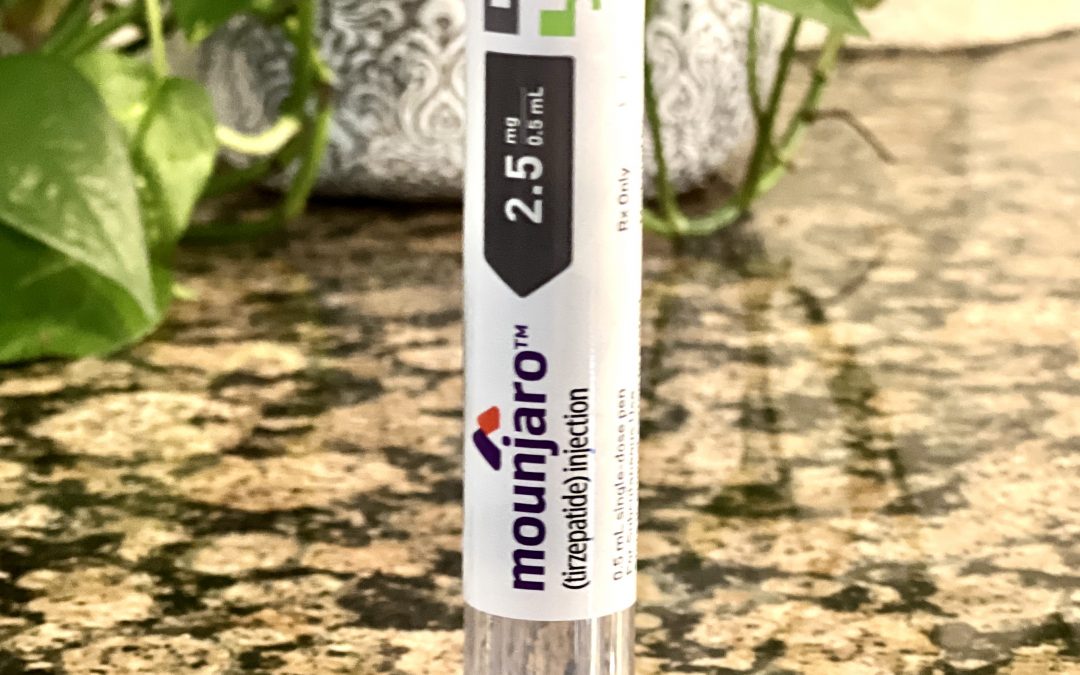Semaglutide vs. Tirzepatide: Which GLP-1 Agonist Offers Effective Weight Loss?
Introduction
Are you navigating the challenges of obesity, perhaps dealing with insulin resistance, perimenopausal or menopausal changes, a family history of type 2 diabetes, or PCOS? Let’s explore Semaglutide and Tirzepatide, two innovative GLP-1 agonists that could be your allies in this journey. We’ll delve into their workings, side effects, and effectiveness in weight loss.
Mechanism of Action
- Semaglutide: This GLP-1 receptor agonist resembles natural GLP-1, enhancing satiety, reducing appetite, and supporting weight loss. It’s a beacon of hope for those struggling with obesity or overweight issues, often accompanied by other conditions like insulin resistance.
- Tirzepatide: A dual GIP/GLP-1 receptor agonist, Tirzepatide targets both GIP and GLP-1 receptors, aiming for improved blood sugar control and enhanced weight loss. This dual approach is particularly promising for those with a family history of type 2 diabetes or PCOS.
Side Effects: What to Anticipate
When starting GLP-1 medications like Semaglutide or Tirzepatide, being mindful of gastrointestinal side effects is crucial for a comfortable treatment experience. These side effects, including nausea, constipation, and diarrhea, are more common during the initial days or weeks of treatment but are usually temporary and are usually mild. Remember: prevention is key!
Proactive Strategies: To minimize these discomforts, it’s advisable to take your medication with or shortly before a meal. This helps your body gradually adapt to the medication, reducing the likelihood of stomach upset. Additionally, beginning with a lower dose and incrementally increasing it as recommended by your healthcare provider can ease your digestive system into adjusting to the new medication.
Lifestyle Adjustments: Staying well-hydrated is essential in managing these side effects. Drinking ample water throughout the day can alleviate symptoms like nausea and diarrhea. Eating smaller, more frequent meals rather than large ones can also help by preventing overloading your stomach, thus reducing discomfort.
Incorporating a diet rich in fiber can improve gut health and relieve symptoms like constipation, but it’s important to increase fiber intake slowly to avoid bloating. Avoiding foods that are fatty, spicy, or heavily processed can further help in reducing nausea and other digestive issues. Engaging in regular, gentle physical activity can also aid digestion and alleviate gastrointestinal discomfort.
Remember, these side effects tend to diminish as your body adjusts to the medication. However, if they persist or worsen, it’s essential to consult your healthcare provider. They can provide additional guidance, modify your treatment plan if needed, or suggest alternative medications or strategies to manage the side effects.
Your well-being is the top priority, and you are encouraged to reach out for support throughout your treatment journey. Together with your healthcare provider, you can find the best approach to manage any side effects and ensure a smooth and effective treatment experience.
- Semaglutide: Common effects include nausea, bloating, constipation, and diarrhea, especially initially. These side effects tend to be mild and can be controled with few preventive measures . Other effects may be headaches, and minor injection site reactions. Rarely, it can cause pancreatitis and gallbladder issues, particuarly in the highest dosages.
- Tirzepatide: Sharing common side effects with Semaglutide, Tirzepatide showed less side-effect incidence than Semaglutide in clinical studies.
Efficacy for Weight Loss: The Research Speaks
- Semaglutide: A pivotal 2021 study in the New England Journal of Medicine highlighted Semaglutide’s potential, with participants achieving an average weight loss of about 15% over 68 weeks.
- Tirzepatide: A 2021 Diabetes Care study emphasized Tirzepatide’s significant weight loss and improved blood sugar control, with some individuals experiencing over 20% weight reduction.
Additional Studies: Broadening Our View
- Comparative Analysis: Research in Obesity Science & Practice and the Journal of Clinical Endocrinology & Metabolism found both Semaglutide and Tirzepatide effective, with no significant differences in effectiveness.
Warm Advice from Your Healthcare Provider
In your weight loss journey, both Semaglutide and Tirzepatide are formidable options, each with unique advantages. Your personal health landscape, including conditions like insulin resistance, PCOS or menopause, and tolerance for side effects will guide your choice. It’s crucial to have a conversation with your healthcare provider for personalized advice based on the latest research. Remember, these medications are most effective when paired with a balanced diet and regular physical activity.
References for Your Perusal
- Semaglutide Study – New England Journal of Medicine
- Tirzepatide Research – Diabetes Care
- Semaglutide vs. Tirzepatide – Obesity Science & Practice
- GLP-1 Receptor Agonists – Journal of Clinical Endocrinology & Metabolism
Embrace this journey with knowledge and support, and always remember that your well-being is our top priority!
